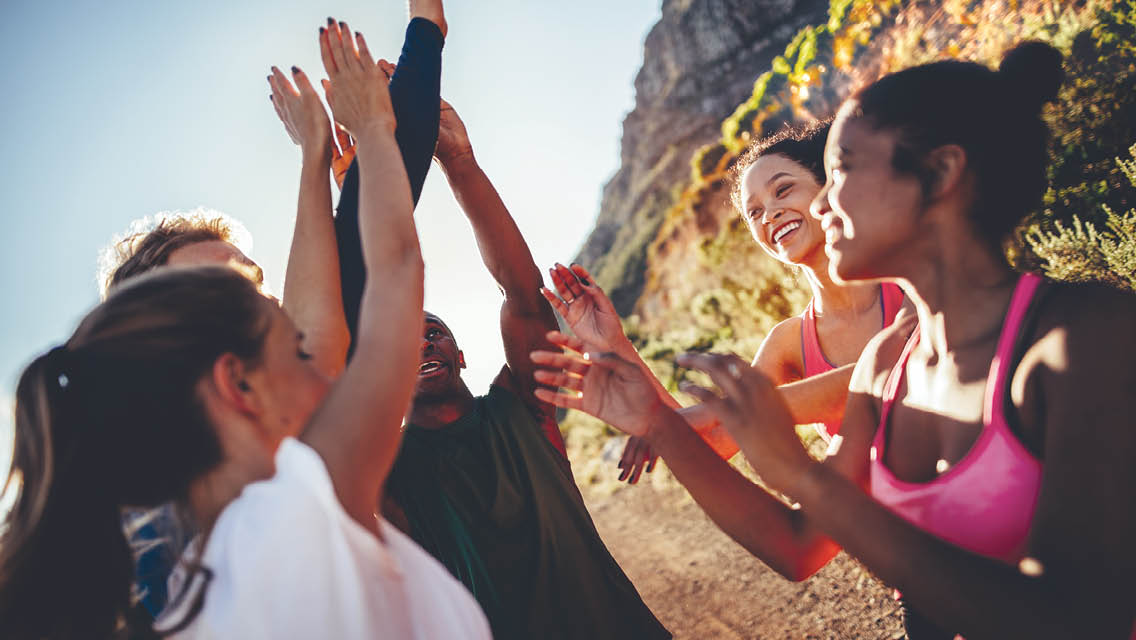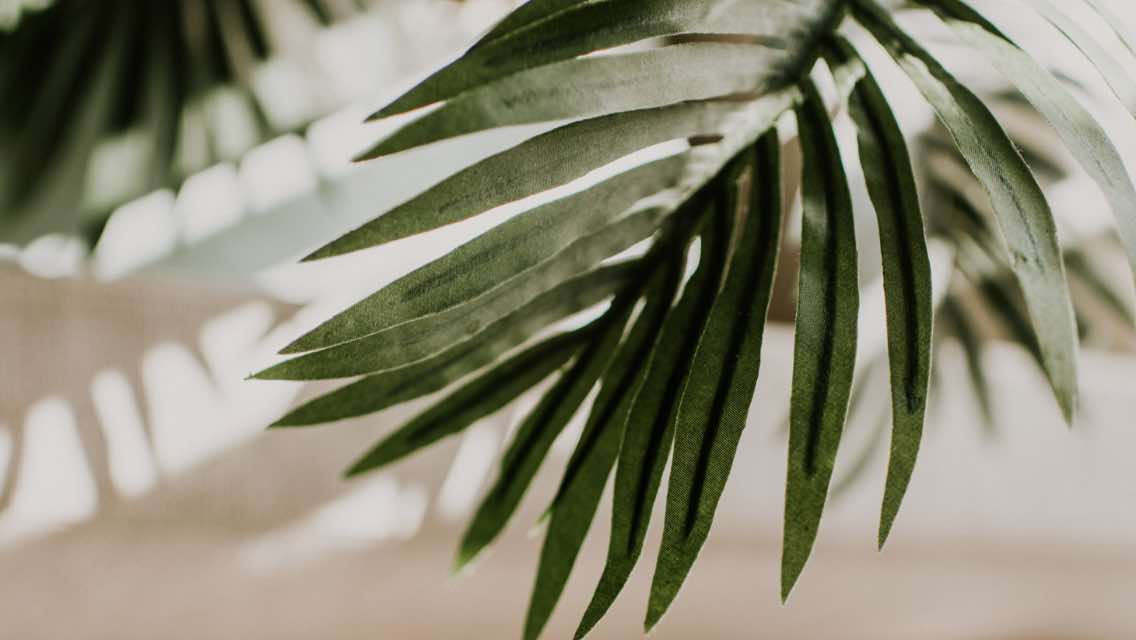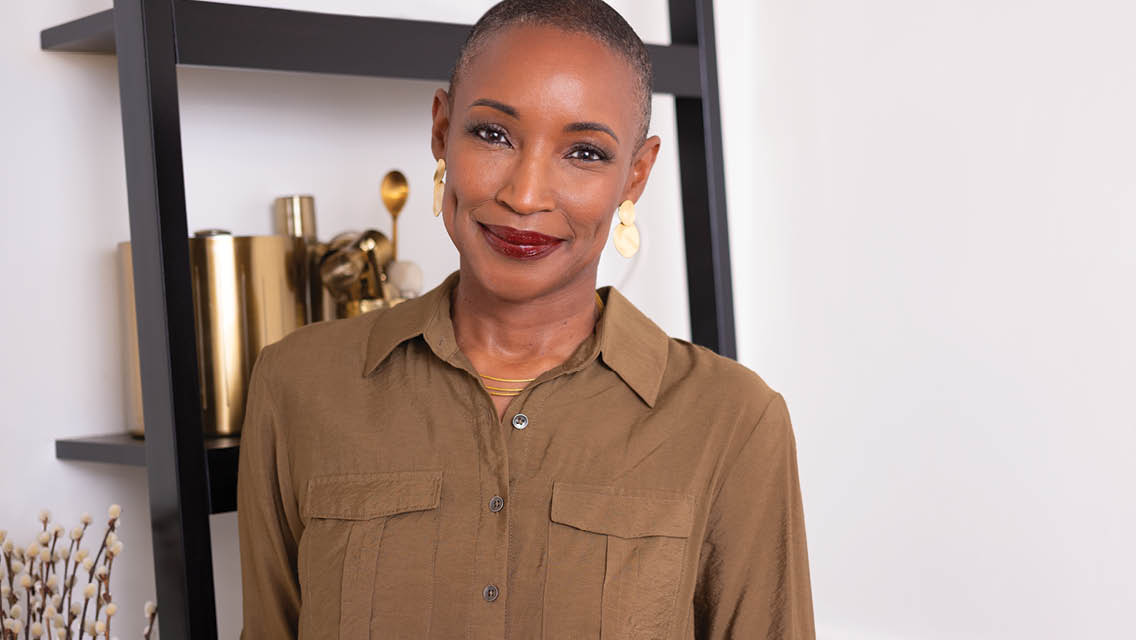After I started biking 15 years in the past, I noticed few ladies roaring down mountain-bike trails or commuting by bicycle. And after I took my bike to be repaired, I used to be not often greeted by individuals who appeared like me; I typically felt unwelcome or intimidated in these areas.
However as I shaped connections throughout the thriving Minneapolis–St. Paul biking neighborhood, I discovered about an open-shop evening for feminine, nonbinary, and transgender cyclists.
Strolling into these gatherings was empowering. The individuals fixing bikes appeared like me, the individuals asking questions appeared like me, and the individuals instructing appeared like me.
Seeing myself mirrored again gave me a way of belonging, which emboldened me to additionally develop into a motorcycle mechanic. And it impressed me to be a pacesetter, as a result of I had experience that mattered.
I returned recurrently whether or not I wanted to make repairs or not. I went for the camaraderie and to be taught from the various riders I met: We shared ideas for layering up for cold-weather driving in addition to which routes to keep away from at sure instances.
Members of marginalized communities — together with ladies, LGBTQIA+, individuals with disabilities, BIPOC (Black, Indigenous, and folks of shade), and extra — have traditionally been excluded from outside areas. Even in the present day, implicit bias and systemic points pose challenges once they take into account embarking on adventures.
This has created what mountaineer and journalist James Edward Mills has dubbed “the journey hole,” arguing that marginalized populations are a lot much less more likely to search recreation, journey, and solace in wilderness areas. His e-book The Journey Hole: Altering the Face of the Open air chronicles the primary summit of Denali by a crew of Black climbers in 2013.
Mills notes that though he by no means felt personally unwelcome among the many outside neighborhood, he couldn’t assist feeling involved that so few different individuals of shade participated. Digging deeper, he discovered that yr after yr, statistics reveal that African Individuals are least doubtless, of all ethnic teams, to interact in outside recreation, to be members of conservation teams, or to pursue careers in wildlife administration.
Though the work to make the outside extra inclusive started in earnest a long time in the past, social-networking websites have now made it simpler for teams to lift their voices in regards to the lack of variety within the outside and conservation industries. Their efforts have created house for a larger spirit of collective activism and adventurism.
Visibility is a key that unlocks doorways for underrepresented communities to inform their very own tales, meet compatriots who get pleasure from the identical actions, reclaim their roots, and develop into leaders within the outside.
Meet a few of the athletes, coaches, and activists making the good outside accessible and secure for everyone — and each physique.
Each Physique Outdoors
Ambreen Tariq
Founding father of Brown Folks Tenting
www.brownpeoplecamping.com; @brownpeoplecamping
Ambreen Tariq’s Muslim, South Asian American household settled in Minnesota when she was 8. Seeing different households heading exterior to hike, fish, and camp, her mother and father saved up cash to purchase a tent of their very own.
“Throughout a very powerful time in my life and my household’s lifetime of transitioning as working-class immigrants the place each different a part of our life was irritating — from bullying to monetary struggles — the minute we obtained outside it was nearly us,” she remembers. “We saved to our nook within the campground as a result of it was nonetheless predominantly white.”
After school and regulation college, Tariq began tenting once more — and observed the outside have been nonetheless occupied largely by white faces. So, she started sharing her personal photographs to spotlight the dearth of variety.
At the moment Brown Folks Tenting makes use of digital storytelling to share the experiences of Black and brown individuals within the outside. “It’s not nearly getting extra faces of shade,” Tariq explains. “It’s about displaying actual individuals’s experiences on the market and what does it imply to have the ability to take a break day and are available out right here.”
Photograph of Tariq by: Paulina Dao
Danielle Williams
Founding father of Diversify Open air
Senior Editor of Melanin Base Camp
www.diversifyoutdoors.com; www.melaninbasecamp.com; @melaninbasecamp
To share the enjoyment of journey with LGBTQIA+ and BIPOC communities, Danielle Williams began Diversify Open air and the running a blog platform Melanin Base Camp. As soon as she started researching, nevertheless, she realized loads of individuals from these teams already hiked, climbed, and kayaked.
“I didn’t know as a result of I had by no means seen any photographs of Senegalese surfers, queer Latinx climbers, or Desi skydivers. I watched tv however couldn’t recall a single U.S. outdoor-retailer advert that includes an journey athlete of shade. So, I assumed we didn’t exist,” writes the Harvard graduate, military vet, and skydiver, who lives with a number of disabilities — and has greater than 600 jumps underneath her belt.
At the moment each websites function avenues for rising the visibility of BIPOC outside lovers within the media and promoting, whereas offering them an outlet to create and management their very own narratives.
Photograph of Williams by: Cornell Watson
Blazing the Path
Verna Volker
Extremely Runner, Founding father of Native Girls Working
www.nativewomenrunning.com; @native_women_running
A member of the Southwest’s Diné (Navajo) Tribe, Verna Volker excelled at basketball as a youth however hated operating. So nobody was extra shocked than she was when she took up jogging in 2009. “I had a preschooler, teenager, and toddler,” she remembers. “I used to be searching for a technique to care for myself, so I began operating.”
What started as a technique to cut back stress and enhance her health has became a mission: elevating consciousness in regards to the lack of inclusivity within the operating business whereas nurturing her personal neighborhood.
When she’s not coaching for her subsequent ultramarathon, chasing her 4 children, or nursing a fledgling enterprise, Volker chronicles tales of Indigenous ladies runners from throughout the US through Native Girls Working (NWR). She began the group a number of years in the past out of frustration: “I didn’t see anybody who appeared like me on journal covers or in commercials, and I wished my sisters to be acknowledged,” she explains.
The greater than 17,000 followers of the NWR Instagram feed study ladies like Carol Seppilu. “Carol’s a tremendous, resilient girl,” Volker says. “She simply ran an unsupported race of 100 miles. But no media shops decide up her story and no shoe firms sponsor her.”
By NWR, Volker started the Murdered and Lacking Indigenous Girls (MMIW) venture, which features a digital run. Based on the Facilities for Illness Management and Prevention, Native ladies are murdered at a price 10 instances larger than that of different races and ethnicities.
“We’re operating to lift consciousness, to assist these we love, and to heal from what and who we’ve misplaced,” Volker says.
NWR has additionally partnered with Go Guarded to create a security ring — a plastic, serrated-edge instrument that may be worn on any finger — and with organizations that train self-defense. “I need these we’ve misplaced to be remembered and people nonetheless right here to be secure,” she says.
Photograph of Volker by: Melissa Fletcher
Jenny Bruso
Queer Femme Hiker,
Host of the Unlikely Hikers podcast
www.jennybruso.com; @unlikelyhikers; @jennybruso
It wasn’t until 2012 that Jenny Bruso, a self-described late bloomer in the case of outside journey, had that quintessential life-changing second on a climbing path.
“Outdoors, I found a reference to nature, joyful motion, and a way of place in a world I wrestle to suit into,” she writes. “I additionally discovered outside tradition to be typically hostile to those that don’t match the white, straight-size, cishet-normative, able-bodied mildew.”
The waitress-turned-hiking-leader is now a staunch advocate for underrepresented outdoorsy individuals like herself — “femme, queer, and fats.”
She makes use of her platform to share how-tos, gear lists, and recommendation, corresponding to “take as many breaks as your physique tells you to and push your self solely in ways in which really feel productive.” Unlikely Hikers additionally hosts meetups and inclusive guided hikes throughout the nation, with the slowest hiker setting the tempo.
Biking for Change
Monica Garrison
Founding father of BlackGirlsDoBike.com
www.blackgirlsdobike.com; @blackgirlsdobike
After surviving one other lengthy Pennsylvania winter, Monica Garrison purchased a motorcycle as a technique to increase her psychological and bodily well being. She rekindled a childhood ardour for biking and obtained her children pedaling, too.
Alongside the best way, she observed few ladies of shade driving. “While you don’t see different individuals doing one thing, it doesn’t all the time cross your thoughts to do it,” Garrison says. “Black ladies typically have the burden of the world on our shoulders — household, work, and easily surviving from daily doesn’t go away time for extracurriculars like biking.”
Garrison skilled the well being advantages of biking firsthand and determined she wished to get different ladies of shade onto bicycles. Based as a Fb group in 2013, Black Ladies Do Bike has grown right into a motion boasting greater than 95 inclusive driving chapters from Alaska and Antigua to London. The chapters promote biking advocacy, security, volunteering, skill-sharing, and self-care. Group rides present camaraderie, accountability, and security in numbers.
Her efforts have received her group partnerships with Trek, REI, and USA Biking.
“5 or 10 years in the past Black ladies cyclists weren’t even on their radar,” Garrison says. “Now I’ve obtained a seat on the desk and direct communications with main business gamers.”
“However I’m most happy with the little issues like getting emails, letters, or assembly individuals telling me that biking has modified their lives, that they’ve began driving, or accomplished their first century,” she says. “That’s how I do know I’ve actually made a distinction.”
Photograph of Garrison by: Chancelor Humphrey
The Black Foxes, Worldwide Biking Collective
www.theblackfoxes.com; @the_blackfoxes
“We Belong Right here,” states the Black Foxes manifesto. This worldwide collective of “unapologetically Black cyclists” seeks to rewrite the narratives about Black individuals’s roles in biking and the outside, encourage extra Black individuals to take part in biking and outside actions, and normalize blackness within the biking business.
Paddling for Inclusion
Charles Webb
Adaptive Surf Champion, Founding father of Stoke for Life Basis
stokeforlife.org; @stokeforlife
Rising up in San Diego, Charles Webb spent hours driving waves. However after his bike met a Buick, his physique and life have been modified eternally. Regardless of having T7–8 incomplete paraplegia, Webb by no means stopped enthusiastic about getting again into the water. “You don’t need your incapacity to outline who you’re,” he says.
About 25 years later, Webb obtained again into the ocean with an Onit Skill Board. In 2013 he entered Battle of the Paddle, turning into the primary particular person with paraplegia to compete in an open-water paddleboard race. Information of his feat went viral and led to calls from others with disabilities in search of to discover ways to paddleboard.
“I’d by no means actually communicated with my neighborhood in that realm, however I had the information and was obligated to share it,” he recollects.
Webb based the Stoke for Life Basis to lift consciousness in regards to the rehabilitative advantages of adaptive water sports activities. The group affords free adaptive paddleboarding and browsing clinics, and advocates for improvements in adaptive water-sports tools and for larger entry to seashores. “Wheelchairs don’t go throughout the sand,” Webb says. “So we want seaside tracks and water wheelchairs.”
Consciousness, training, and “kindness to people who find themselves totally different” are keys to vary, he says. He encourages individuals to donate cash and volunteer. “Don’t simply speak about it — be about it.”
Photograph of Webb by: Justin Rose
Colleen Cooley
River Information, Diné (Navajo) Group Advocate
@ccoolio2
Regardless of generations-old tales connecting the Diné individuals to the San Juan River, financial and social boundaries have typically saved them from recreation on the waterway.
In 2010 Colleen Cooley turned one of many first feminine Diné river guides main teams by the 4 Corners area of the Southwest. “I believe it’s essential as a Diné river information to inform our story, our perspective, and the way we connect with this place,” she says. “I need to share and be that function mannequin for different guides — particularly our personal individuals.”
Her work connects the Diné to a conventional supply of religious sustenance. However Cooley additionally raises consciousness amongst everybody visiting the watershed in regards to the hidden and violent historical past of America.
“I would really like anybody that goes on the river to know that it’s Indigenous land,” she says within the brief movie Water Flows Collectively (www.sprucetonefilms.com/waterflowstogether).
“Earlier than Park Service, earlier than BLM, earlier than Forest Service, earlier than any of the boundaries together with the Navajo Nation, all of it was Indigenous land. It’s not only a playground.”
Climbing for Visibility
Erin Parisi
Mountaineer, Founding father of TranSending7
www.transending7.org
Erin Parisi’s purpose is to face atop the tallest factors on all seven continents. When she first climbed Mount Kilimanjaro, Africa’s tallest peak, in 2011, she was presenting as a person and “went up there for perhaps all of the flawed causes,” Parisi recollects.
“I bear in mind feeling like if I obtained to the highest of that mountain I might actually show one thing to myself and to the world,” she provides. “After I returned there as feminine, I wished to climb out of the shadows and climb to a spot the place I could possibly be the very best I might go and inform the world who I’m and no person might accuse me of being ashamed of it.”
Ever since saying her transition, Parisi has been reaching new heights. She summited the very best peaks in Australia, Africa, and Europe throughout the first half of 2018. “There’s a complete narrative that goes together with transition in the US. You are feeling such as you will be you. However you possibly can’t be seen and you may’t be heard,” she explains. “All the things the Seven Summits stood for to me was bucking that stigma and saying that I might personal my very own narrative.”
In 2018 Parisi additionally began TranSending7, a nonprofit that shares optimistic messages that thwart misconceptions about what it means to be transgender and helps different transgender athletes of their sports activities.
Photograph of Parisi by: Wyn Wiley
Summer time Winston
Founding father of the Brown Ascenders
@thebrownascenders; @summerseeking
Multiracial, nonbinary climber Summer time Winston is likely one of the masterminds behind the San Francisco–primarily based climbing nonprofit the Brown Ascenders. The thought to create a assist group of self-identified climbers started once they attended the Shade the Crag Climbing Competition in 2017. In an effort to make climbing extra reasonably priced and accessible, Winston, an teacher at Santa Rosa Junior Faculty, satisfied a neighborhood health club to waive initiation charges.
Difficult the Slopes
Garry Schlag
Skier, Science Instructor, Wilderness Expedition Chief
“In all my lifetime of snowboarding, I’ve by no means had a mentor or teacher of the identical racial id as me,” says Japanese American Garry Schlag. “Rising up snowboarding in Park Metropolis, Utah, teammates and coaches referred to as me ‘twinkie’ — yellow on the surface, white on the within. The racist concept that snowboarding makes me white on the within comes from the racist assumption that snowboarding is a white exercise.”
Range on the slopes hasn’t modified a lot since Schlag was a child. Current knowledge from the Nationwide Ski Space Affiliation reviews that 88 p.c of skiers are white and properly off financially.
Schlag is now a science instructor and expedition chief at Excessive Mountain Institute in Leadville, Colo. Excessive-school college students there are immersed in a semester of rigorous teachers and wilderness expeditions, wherein Schlag holds house for college kids and instructors alike to think about the methods their intersectional identities relate to their reference to their management kinds and the pure world.
Photograph of Schlag by: Tim Faust
Anthony Taylor
Multisport Athlete, Coach, Activist
An avid paddler, fisherman, and bike owner, Anthony Taylor has been working to shut the journey hole for Black, Latinx, and Hmong youth in Minneapolis–St. Paul for many years.
Within the Nineteen Nineties, the longtime activist cofounded the Main Taylor Bicycling Membership of Minnesota, named after Black biking champion Marshall “Main” Taylor. Anthony Taylor serves on the League of American Bicyclists’ Fairness Advisory Board and the board of the Nationwide Brotherhood of Skiers.
To create fairness and larger well-being for all, Taylor believes it’s crucial to vary the questions. “As an alternative of speaking about it as sport or efficiency, what if we appeared on the outside as a method for constructing the people that we wish?” he says. “Each particular person can have their very own progressive expertise within the outside, which isn’t the case in conventional sports activities.”
His newest enterprise is an outreach program — Cool Meets Trigger — that companions with the Loppet Basis to show Black ladies to snowboard. In contrast to the media photographs designed in methods that may make them really feel inferior, “the outside is an area for constructing ladies who love themselves,” Taylor says.
This text initially appeared as “Each Physique Outdoors” within the June 2021 challenge of Expertise Life.







